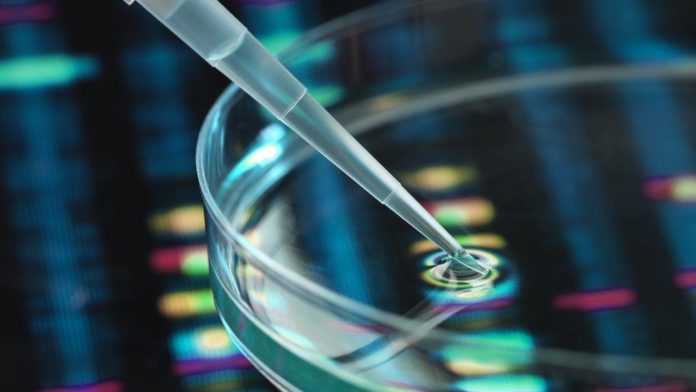Scientists say they should soon be able to effectively cure inherited, life-threatening heart muscle conditions to save more young people from sudden cardiac death.
The British Heart Foundation has pledged £30m to the gene researchers who believe they can correct faulty DNA responsible for the damage.
Cardiomyopathies can kill without warning.
Many members of the same family are often at risk due to their genetics.
READ MORE:
Cardiomyopathies often hit the headlines when they result in sudden cardiac death or heart emergencies in young, elite athletes.
Sport can exacerbate an underlying condition.
Footballer Fabrice Muamba collapsed on the pitch aged 23 because of heart problems during a game for Bolton in 2012. Doctors managed to resuscitate him, but others – like 28-year-old Cameroon soccer star Marc-Vivien Foe – have died.
The research team who have been given the grant say they are confident that their gene therapy could be ready for testing in human clinical trials within five years, now that the genes and specific genetic faults responsible for different cardiomyopathies, and how they work, have been uncovered.
They have already been doing groundwork in animals and human cells.
Delivered through an injection in the arm, the therapy could halt heart damage in those already living with genetic cardiomyopathies, they say.
And it could prevent the disease developing in family members who carry a faulty gene but have not yet developed the condition – effectively curing the problem.
Max Jarmey, who is 27, was told a few years ago that he had inherited a type of genetic cardiomyopathy. The condition – arrhythmogenic right ventricular cardiomyopathy (ARVC) – killed his father when Max was 13.
Max’s younger brother Tom has it too.
Max says he tries to focus on what he can do rather than what his condition stops him doing, although he says has given up some types of sport as a precaution.
He has been fitted with an implantable defibrillator device that can shock his heart back into a normal rhythm, protecting him from a cardiac arrest.
It’s the same treatment England cricketer James Taylor needed for his ARVC.
Max said: “I’m pretty mentally robust, but the first six months following my diagnosis were incredibly difficult.
“I think the only way to deal with my diagnosis is to accept it and the fact that I can’t control it.”
He hopes to be involved in the CureHeart trial.
“When I think about my future, the decision to have children and their future, CureHeart could make that decision easier. My children might never have to suffer like I have with this condition. That is completely life-changing.
“This project gives me hope.”
Cardiomyopathy is a disease in which heart muscle is typically weakened or distorted, and functionally impaired. This can cause symptoms such as chest pain, breathlessness or palpitations, and frequently leads to heart failure.
While cardiomyopathy symptoms can often be controlled by medication, devices such as pacemakers, or surgery, there is currently no cure for heart failure.
Prof Sir Nilesh Samani, medical director at the British Heart Foundation, said: “This is a defining moment for cardiovascular medicine. Not only could CureHeart be the creators of the first cure for inherited heart muscle diseases by tackling killer genes that run through family trees, it could also usher in a new era of precision cardiology.
“Once successful, the same gene editing innovations could be used to treat a whole range of common heart conditions where genetic faults play a major role. This would have a transformational impact and offer hope to the thousands of families worldwide affected by these devastating diseases.”

